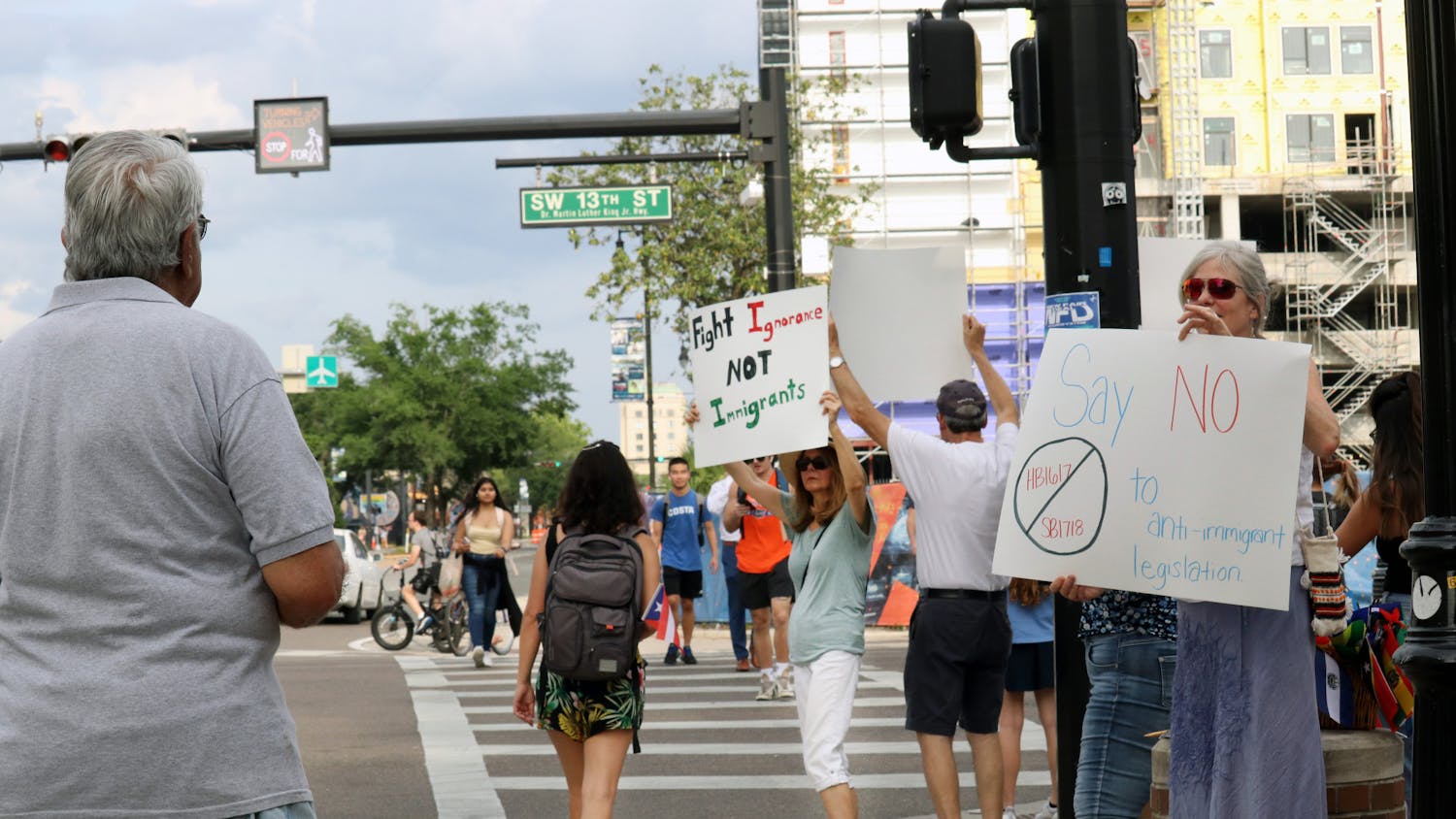By noon, a third of the class was gone. As the minutes passed, more kids in my fourth grade class were being pulled out by panicky parents. During lunch, the few of us remaining were confused. The rumor in the cafeteria was that the Chinese had attacked us. The idea of the Commies invading U.S. soil made sense to my 9-year-old mind. Earlier that year, an international crisis had occurred after a mid-air collision between a U.S. Navy plane and a Chinese fighter jet. Diplomatic tensions soon subsided, but sitting in the cafeteria, I figured the only thing that could force my buddies to evacuate our elementary school was a ground invasion of South Florida by the Red Army.
Twelve years since that day, it’s easy to laugh at my childish notions. But aside from whatever story we all remember from Sept. 11, 2001, today’s anniversary brings painful memories to many. The terrorist attacks that morning caused 2,977 individuals to leave this world. The daughters and sons, the widows and widowers of those victims find restless hearts when they recall 9/11 — and so should we.
Immediately after 9/11, candlelight vigils and other solidarity events were held in the Muslim world expressing grief over the loss of innocent American life. In Iran — yet to be included in President George W. Bush’s “axis of evil” at the time — an entire soccer stadium observed a minute of silence honoring the dead. If that wasn’t enough to break the stereotype that all Muslims were terror lovers, the Palestinian leader Yasser Arafat expressed horror at the crimes, and even the Ayatollah of Iran condemned the suicide attacks. For a moment, the headline of the French daily Le Monde spoke for the world: “Nous sommes tous Americains” — “We are all Americans.”
Humanity held its breath, hoping America would grasp the mantle of moral leadership. But we lost it. We fell for our politicians’ war drums, and we lost it. We toppled the Afghan government and militarily occupied the country instead of using the less-dramatic and more logical approach of criminally investigating the organizers and financiers of the isolated terrorist networks. Our response to foreign violence with American violence had just begun.
In September 2002, the Bush administration released its National Security Strategy. If the NSS had anything to do with “national security,” we would have world peace today. The NSS called for action against countries before said countries could even threaten the U.S. with weapons of mass destruction. In proclaiming such a vague defense policy, much of the world could be labeled a “security threat.”
We went for oil-rich Iraq, with nearly 70 percent of Americans convinced that Saddam Hussein was somehow “personally involved” in the 9/11 attacks. Bush’s favorite philosopher said in the Gospels, “Put your sword back into its place. For all who take the sword will perish by the sword.” Jesus didn’t predict modern America’s lack of ethical insight, but his teaching that violence begets violence remains true today.
American obsession with violence and hostility as tools to deal with 21st century problems hasn’t changed much in recent years. Sure, we got out of Iraq, but we replaced that with hundreds of Yemeni and Pakistani civilians being killed in drone strikes ordered by the Obama administration. We continue to occupy Afghanistan, and now the war drums for striking Syria are beating loud.
The U.S. somehow manages to detain more than a hundred men without trial at Guantanamo — about half of them cleared for release — and force-feed dozens of others. In 2012, former President Jimmy Carter called our bipartisan disregard for human rights since 9/11 a “cruel and unusual record.” Milton Friedman once said, “Governments never learn. Only people learn.” Are we going to do anything about the moral decline of U.S. foreign policy? Or should we pray, as Pope Francis did in a four-hour public vigil last Saturday, pleading for divine aid to pull us out of the “spiral of sorrow and death?” Remember, humanity can only hold its breath for so long, so let’s get the ball rolling.
Zulkar Khan is a UF microbiology senior. His column runs on Wednesdays. A version of this column ran on page 7 on 9/11/2013 under the headline "‘Governments never learn. Only people learn.’"





